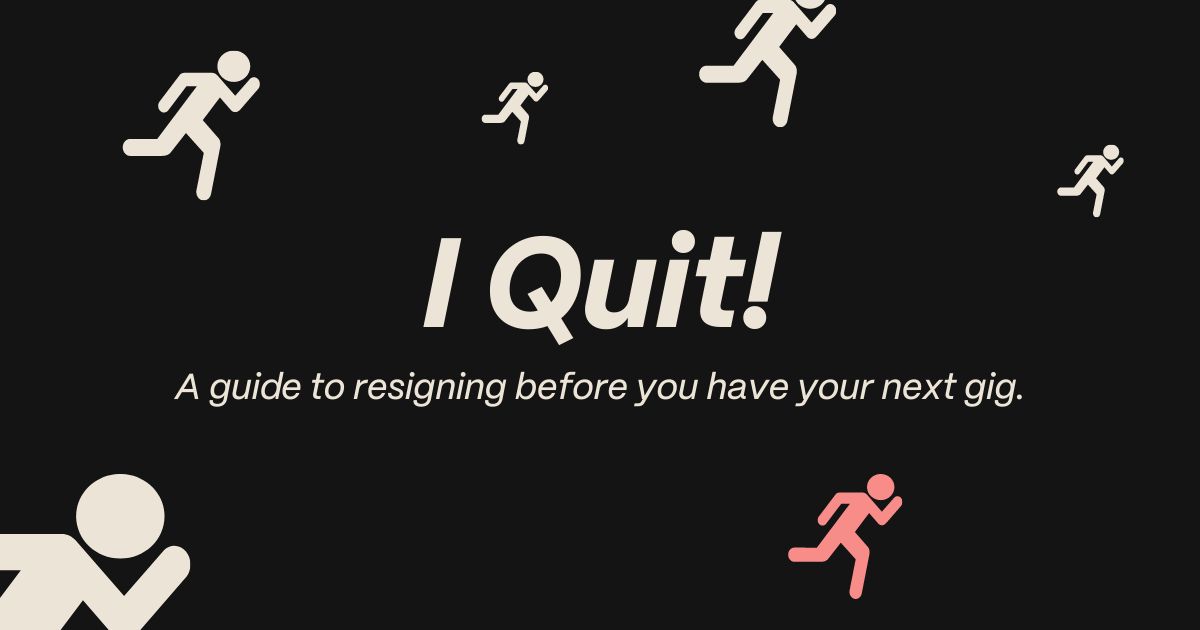
I quit! A somewhat cautionary tale
Weighing up whether you should resign before finding your next gig.
An old friend called me recently and asked whether she could resign before finding her next role.
I paused. A few years ago, I would have politely persuaded her otherwise, but I wasn’t so sure today.
One huge factor right now is the job market. With talent wafer-thin on the ground, it’s nothing short of red-hot. But this person would have little trouble finding a role in any market. So why the pause?
Breaks in your employment history are becoming increasingly acceptable – especially when those breaks have been for personal recovery. The pandemic has made us collectively realize (as we’ve looked into colleagues’ lives through Zoom & Teams video calls) that work and home are intrinsically intertwined.
“Angus isn’t just the guy from accounts anymore; he’s the single dad with two kids at home.”
“Camilla isn’t just my manager; she’s caring for her elderly mother.”
“Steph isn’t just the bubbly brit on her OE; she’s a person who hasn’t been able to visit her family for the last two years.”
Months of practising kindness have made us hyper-aware. So when we look at a CV and see a gap, we can say, “yes, I understand how someone could use a bit of time out.”
In a recent poll by American recruitment firm Wonsulting, 65% of respondents either said that it’s ok to resign before you have your next gig or considered there were circumstances where it could be ok. In short, the ayes had it.
If this is inspiring you to throw in the towel though, it would be wrong of me not to offer some words of warning.
While it can be incredibly empowering to shout I quit! and storm out, you might want to imagine what the days and weeks will be like after you leave. While they can be liberating, they can also be lonely and worrisome.
I would encourage you to make a plan. Say to yourself, “I’m going to take [two] weeks off to reset, then I’m going to start looking for another job actively. This way, I’ll be back working – and refreshed – within [two] months”.
Also, consider your finances. Is the pressure of no income going to be worse than the stress of your current job? What happens if it takes longer than you expect to find my next position. It’s worth thinking about.
Above all else, be professional. Just as Will Smith learned at the Oscars, a moment of madness can cost you a lot in the long run.
When it boils down to it, there are a lot of factors to consider. If you’re finding it difficult at work, one of the healthiest things could be to talk it through with your manager. Use the conversation as an opportunity to get what everyone might already be thinking out on the table. As we’ve seen many times before, this person might even become the person who helps you find your next role.
In the end, the response I gave to my friend was, “it depends.” Yes, it’s not a clear answer, I know. But let me finish with this: A candidate who has taken an opportunity to recharge the batteries will bring a lot to the table when they get back in the game. If you do the numbers, don’t rule it out putting yourself first.


Sheetal
May 7, 2022 at 7:09 amThis blog was eye opening, Thank you.